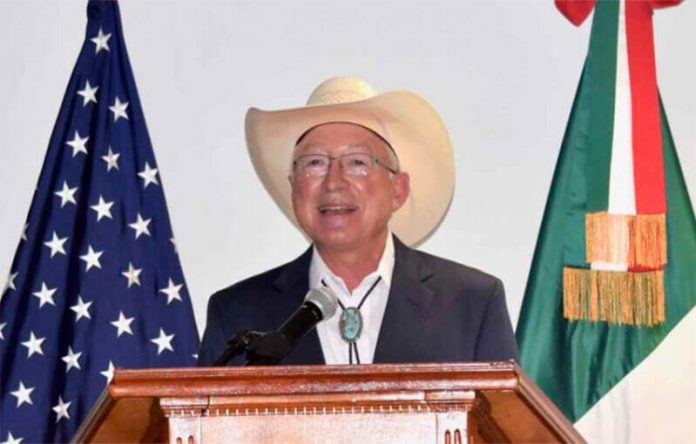The United States ambassador to Mexico has expressed cautious confidence that the two countries can reach a mutually agreeable resolution with regard to President López Obrador’s proposed electricity reform, which seeks to limit the market share of foreign and private companies.
Ken Salazar told a press conference Tuesday that the United States is seeking to understand more about the motives of the planned reform, which López Obrador sent to Congress at the start of October.
The constitutional bill aims to guarantee 54% of the power market to the state-owned Federal Electricity Commission and get rid of the independent National Hydrocarbons Commission and the Energy Regulatory Commission.
Salazar acknowledged that renewable energy companies that have invested heavily in Mexico are worried about the president’s proposal, even though its approval is far from guaranteed because the ruling Morena party and its allies don’t have the congressional supermajority required to pass constitutional bills on their own.
He said last week that the U.S. government had “serious concerns” about the plan and was “committed to continuing our dialogue on these critical issues.”
The ambassador stressed Tuesday that Mexico needs the investment of United States companies for its economy to flourish, not just in the energy sector “but also in many other things.”
He said the U.S. government is attempting to find out “whether there are some paths on which we can reach a resolution” vis-à-vis the electricity bill.
“I don’t know if that’s possible … I believe there are possibilities that we can reach a place where [the issue] can be resolved [but] I’m not sure,” Salazar said, without revealing what concessions the U.S. is seeking.
“… What I am sure about is that the two presidents have a good relationship, and we’re having meetings with the government leaders to see the way in which we can move ahead,” he said.
López Obrador said on Monday that he was unconcerned about Salazar’s remarks about his electricity proposal because the United States government hasn’t formally lodged a complaint about it.
“We have very good relations with the United States, the border is opening today, and we don’t have any kind of complaint or protest against the electricity matter,” he said.
López Obrador also said that the United States doesn’t consider Mexico to be its “backyard” and respects the country’s sovereignty. Salazar is a good ambassador who has the right to express himself, he added.
“We’re always going to be respectful of all opinions,” López Obrador said, before accusing the media of selective reporting on the ambassador’s remarks.
“Because he said — I don’t know whether it was before or after [he raised concerns about the electricity bill] — that the Mexican government was acting well, he even praised us for following the footsteps of Roosevelt. But they don’t publish that – that’s why we shouldn’t get heated up because they take a lot of statements out of context,” he said.
With reports from Milenio and El Universal
